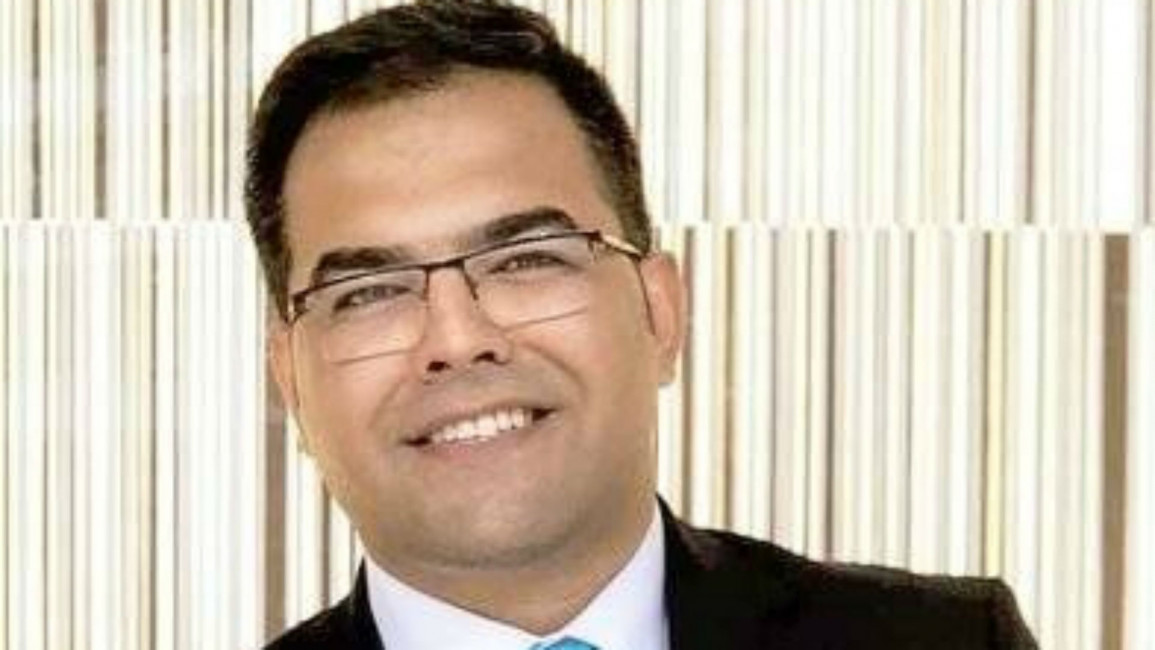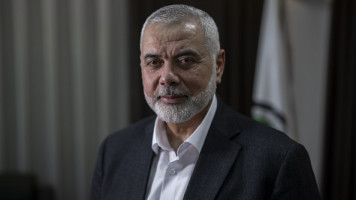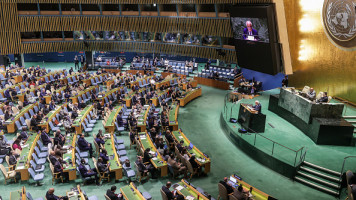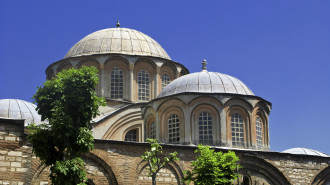Iran opposition journalist who exposed government corruption assassinated in Istanbul
Massoud Molavi, said to be in his mid-30s, was murdered on the street while walking with a friend in the Sisli district of Istanbul on 14 November, according to the DHA news agency.
Bullet casings were found at the scene. CCTV footage, released by another agency, IHA, appeared to show the moment of the killing.
Molavi helped run a channel on Telegram called "Black Box", which published corruption allegations against members of the government, judiciary and intelligence services, and claimed to have contacts within the Revolutionary Guards.
Turkish police told DHA that investigations were ongoing, and that they had no information at present on Molavi's background.
Iran's intelligence services are known to have a sizeable presence in neighbouring Turkey, where many exiled Iranians live, and many more come on vacation.
In April 2017, the owner of a leading Persian-language satellite entertainment channel, GEM TV, was shot dead in his car by unknown individuals in Istanbul.
Said Karimian was a British citizen of Iranian origin, and ran GEM TV from Dubai, offering Western programmes to Persian-speaking audiences, including US game shows and Turkish soaps.
The assassination of the opposition journalist comes amid widespread protests in Iran which were triggered by a sudden hike in petrol prices in the country.
The unrest erupted hours after the midnight announcement that the price of petrol would be immediately raised by 50 percent for the first 60 litres and 200 percent for any extra fuel after that each month.
President Hassan Rouhani said the proceeds would allow his government to provide welfare payments to the needy.
During the violence, dozens of banks, petrol pumps and police stations were torched across Iran.
Officials have confirmed five people were killed, but the death toll from clashes with security forces is thought to be much higher.
The United Nations said it feared that dozens died, while Amnesty International said more than 100 were believed to have been killed.
Authorities say they arrested 180 "ringleaders".
The total number of people detained remains unclear, but the UN human rights office put it at more than 1,000 last Tuesday.
Officials have accused royalist and US-backed "thugs" of orchestrating unrest in the country.
Rear-Admiral Ali Fadavi, deputy commander in chief of the Guards, warned Sunday that Iran would severely punish "mercenaries" arrested over the violence.
Iran has blamed the unrest on the Pahlavi royal family ousted in the 1979 Islamic Revolution and armed opposition group the People's Mujahedeen of Iran, which it considers a "terrorist" cult.
Mass pro-government rally
On Monday, supporters of Iran's government poured into central Tehran for a massive rally to condemn days of "rioting" that the Islamic republic blames on its foreign foes.
Waving the Iranian flag and banners that read "Death to America", they descended on Enghelab (Revolution) Square from all directions.
The square filled up quickly on Monday with young and old, including clerics carrying portraits of Iran's Supreme Leader Ayatollah Ali Khamenei.
The rally was addressed by Major General Hossein Salami, head of the elite Islamic Revolutionary Guard Corps which helped to put down the unrest.
"This war is over," Salami told the huge crowd that covered the square and spilled into side streets.
"You have defeated the power of the arrogance," he said, referring to America.
"The enemy has collapsed and today it is disappointed because of the glory of your presence. The coup de grace has been delivered."
Long-fraught links between Tehran and Washington plunged to a new low in May last year when the US unilaterally withdrew from an international accord that gave Iran relief from sanctions in return for curbs on its nuclear programme.
Follow us on Twitter and Instagram to stay connected



